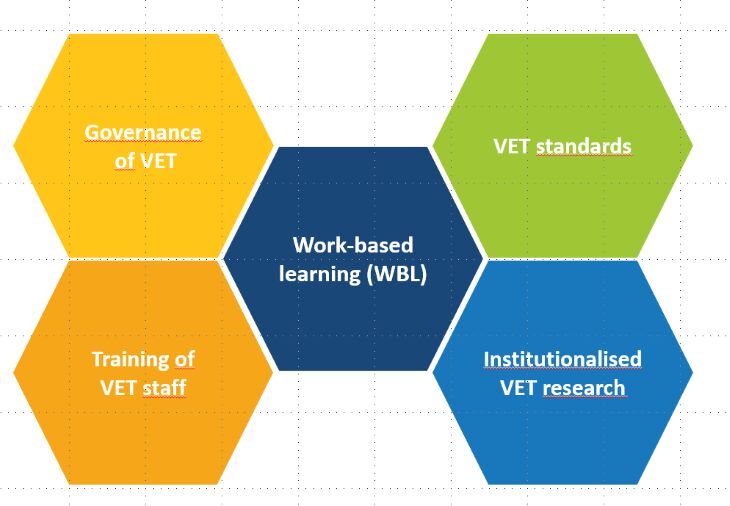Concept of international advisory services
Since the 1990s, BIBB has been assisting international stakeholders in the design of VET framework conditions and processes. BIBB’s advice aims to support the individual partner’s education policy goals and strategies. Moreover, these services can be understood as an external stimulus for systemic development processes.
BIBB advices
- political decision-makers (mostly ministries of labour or education) primarily on the integration of all relevant social stakeholders,
- public VET institutions from practice and science in the development and transformation of structures of VET and
- VET organisations on questions of the practical implementation
on the core elements of a dual vocational training system.
Advice is provided in third-party funded projects, sometimes together with other organisations and VET stakeholders, such as Deutsche Gesellschaft für Internationale Zusammenarbeit (GIZ).


Nigeria 2025 - 2026

Indonesia 2019 - 2027

